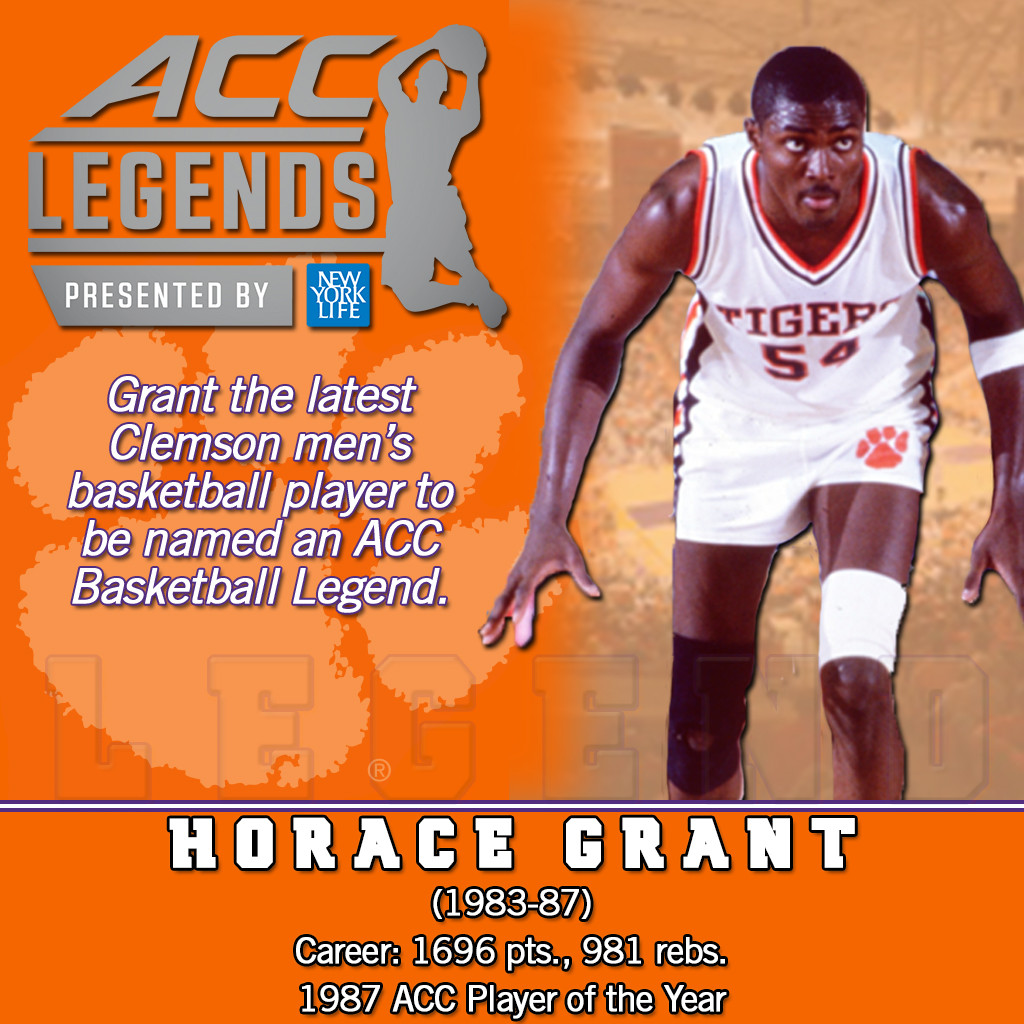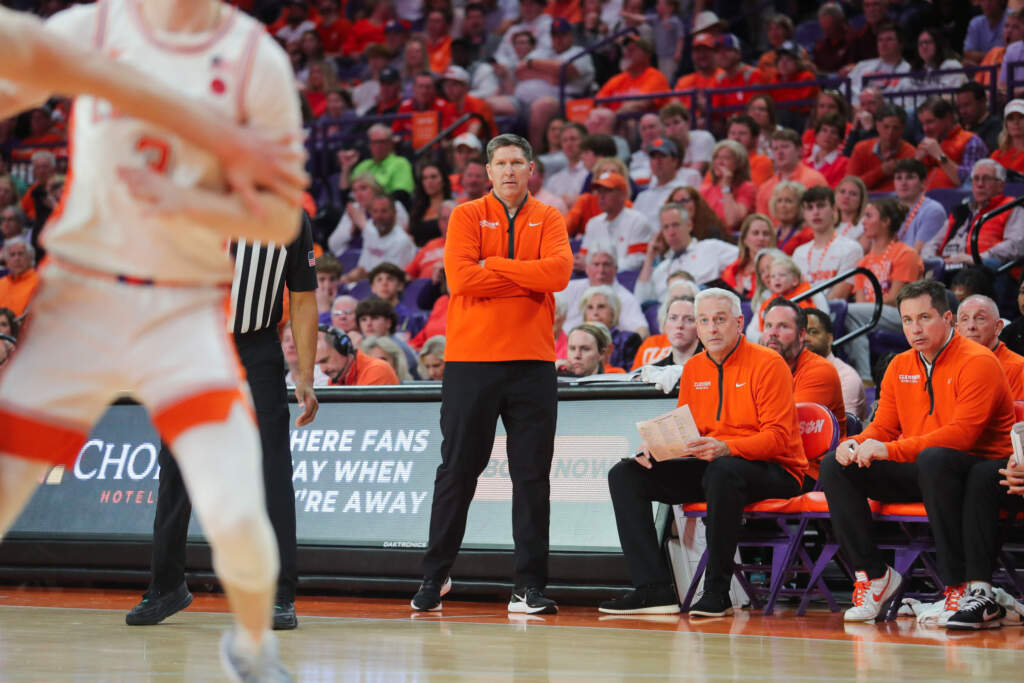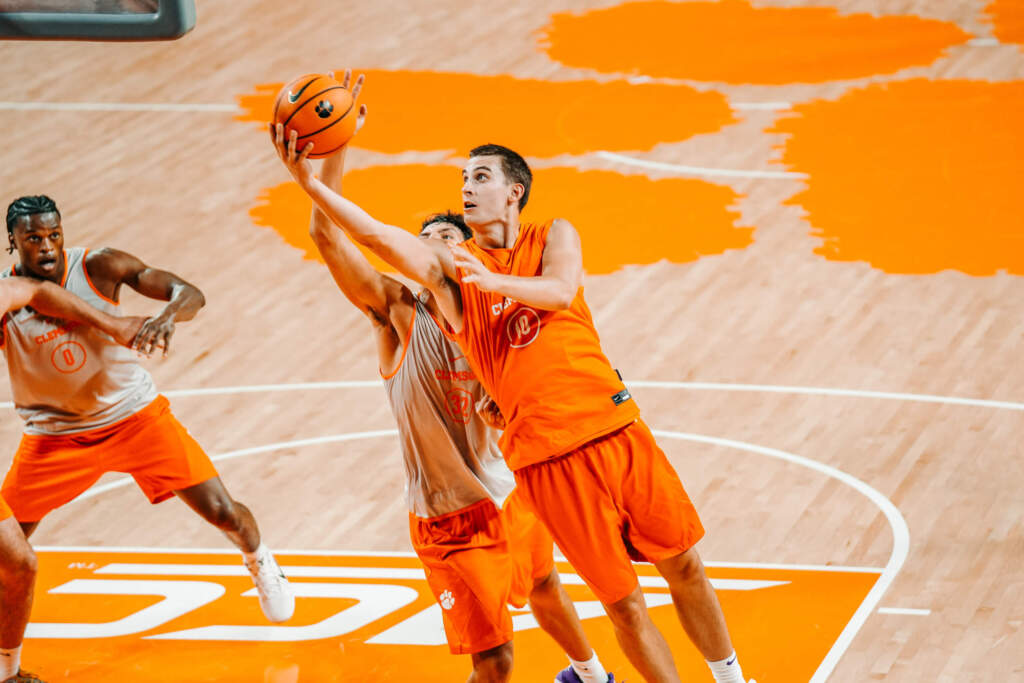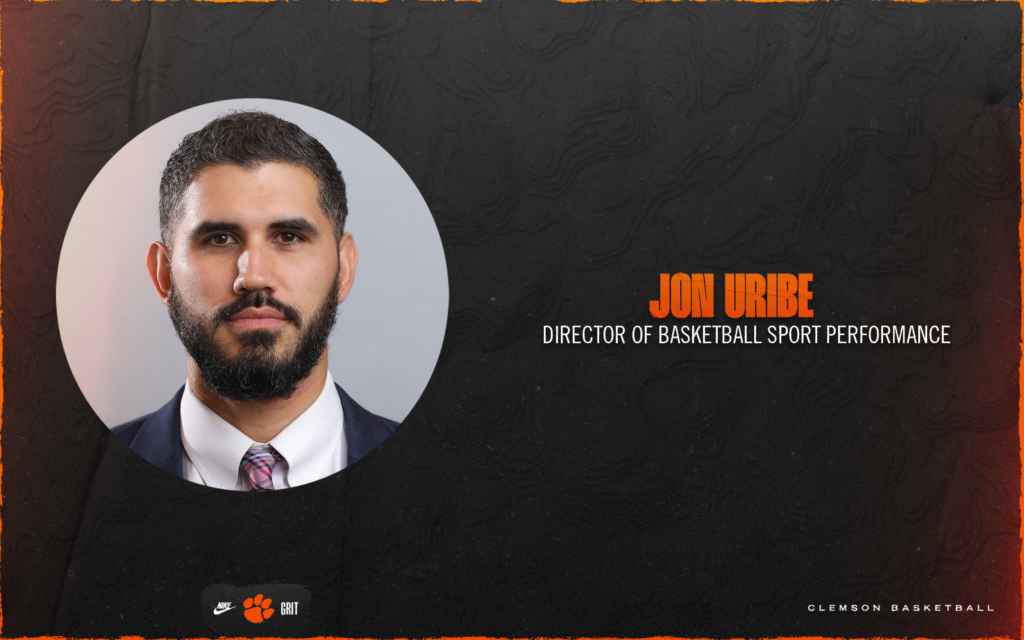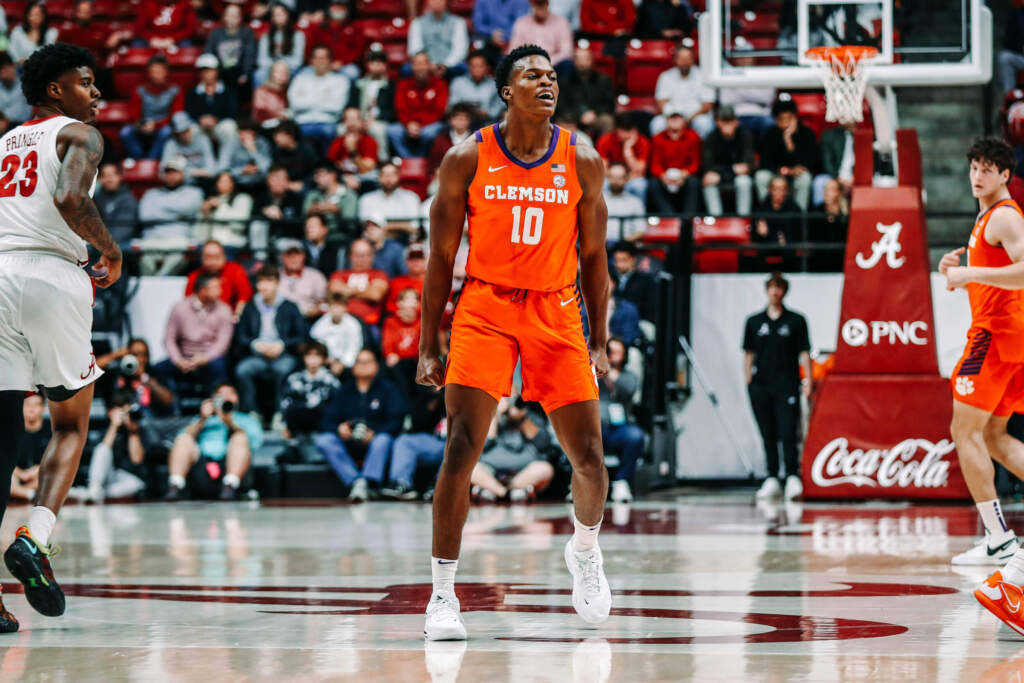GREENSBORO, N.C. (theACC.com) – Thirteen former standout players and a pair of record-setting coaches headline this year’s class of ACC Basketball Legends presented by New York Life.
The Legends will be recognized during the 2015 New York Life ACC Tournament, which will be held March 10-14 at the Greensboro Coliseum. They will be featured at the annual ACC Legends Luncheon, which will be held Friday, March 13, beginning at noon in the Guilford Ballroom of the Sheraton Four Seasons Hotel. They will then be introduced that evening to the Greensboro Coliseum crowd during halftime of the first semifinal game. Ticket information for the ACC Legends Luncheon is available at theACC.com and at the end of this release.
The 2015 ACC Legends Class:
Malcolm Huckaby, Guard, Boston CollegeHorace Grant, Forward, ClemsonShane Battier, Forward, DukeDoug Edwards, Forward, Florida StateBobby Cremins, Head Coach, Georgia TechJunior Bridgeman, Guard/Forward, LouisvilleDarius Rice, Forward, MiamiFranklin “Rusty” Clark, Center, North CarolinaVinny Del Negro, Guard, NC StateTroy Murphy, Forward, Notre DameBilly Knight, Guard/Forward, PittDerrick Coleman, Forward, SyracuseDonald Hand, Guard, VirginiaCharlie Moir, Head Coach, Virginia TechDave Budd, Forward, Wake Forest
This year’s ACC Legends class includes two National Players of the Year, a Final Four MVP, seven players who earned conference player of the year honors and a pair of ACC Tournament MVPs. The group combined to make eight NCAA Final Four appearances and capture 10 ACC Tournament titles. The two coaches in this year’s class own a combined 971 wins in 51 collegiate seasons.
A capsule look at each member of the 2015 ACC Men’s Basketball Legends Class:
Malcolm Huckaby, Boston College (1990-94) – Huckaby played in 126 games as a collegian, including 106 as a starter. He helped the Eagles earn two trips to the National Invitation Tournament (1992-93), followed by a memorable run to the NCAA Elite Eight in 1994 that featured a second-round upset of defending national champion North Carolina and a win over Indiana in the regional semifinals. Huckaby scored 1,316 career points while connecting on 199 3-point field goals and still ranks 20th on BC’s all-time scoring list. An “iron man” on the court, he once played all 50 minutes – and scored 34 points – in a double-overtime victory. The Bristol, Connecticut, native was a three-time recipient of the Eagles’ Defensive MVP award and made 198 steals during his Boston College career. Huckaby played professional basketball with the NBA’s Miami Heat, as well as in France and Italy. He now resides in the greater Boston area, where he works as Vice-President of Investments for Capitol Securities, as well as a college basketball analyst for ESPN and IMG.
Horace Grant, Clemson (1983-87) – Grant became the first Clemson men’s basketball student-athlete to be named the ACC Player of the Year when he achieved the honor in 1987. He went on to win more championship rings as a professional athlete than any former Tiger. A native of Sparta, Georgia, Grant won the “triple crown” in 1986-87, as he led the ACC in scoring (21.0), rebounding (9.6) and field goal percentage. His .656 shooting percentage from the field ranked third nationally. Grant earned second-team Associated Press All-America honors after leading the Tigers to the NCAA Tournament and a 25-6 overall record his senior season. He went on to win four World Championship rings in the NBA, three with the Chicago Bulls and one with the Los Angeles Lakers. He scored 12,996 points in 17 NBA seasons – more than any former Clemson player in the NBA. He was inducted into the Clemson Hall of Fame in 1999, the state of South Carolina Hall of Fame in 2010 and the state of Georgia Hall of Fame in 1992. His nephew, Jerai, played on four NCAA Tournament teams at Clemson and graduated in 2011.
Shane Battier, Duke (1997-2001) – The consensus National Player of the Year in 2001 after leading the Blue Devils’ march to the NCAA title, Battier established himself as a steady scorer, rebounder and defensive stopper. Honored three times as the NABC National Defensive Player of the Year, Battier averaged just under 20 points per game as a senior while pulling down 7.3 rebounds per game. The Birmingham, Michigan, native was also named the ACC Co-Player of the Year in addition to ACC Tournament MVP and the Most Outstanding Player of the NCAA Final Four in 2001. A member of coach Mike Krzyzewski’s teams that compiled a 133-15 record over his four seasons at Duke, Battier appeared in 146 games as a Blue Devil, averaging 13.6 points and 6.1 rebounds for his career. An Academic All-American in addition to a standout on the court, Battier is tied for 12th on Duke’s all-time scoring list with 1,984 points. Battier was a first-round NBA Draft pick by the Vancouver Grizzlies and the No. 6 overall selection in 2001. He played 13 seasons professionally. Battier joined ESPN’s broadcasting team this season as a college basketball analyst and has worked a number of ACC games.
Doug Edwards, Florida State (1990-93) – Edwards was part of the first two Florida State ACC teams that made an immediate impact upon joining the league for the 1991-92 season. The Miami native started 93 games as a steady and consistent contributor to the Seminoles’ success. After averaging 16.4 points and 7.1 rebounds in 1990-91, Edwards helped FSU to a second-place ACC finish in its first ACC season the following year. Earning second-team All-ACC honors, Edwards averaged 17.1 points and 9.0 rebounds for the 22-10 Seminole team that reached the second round of the NCAA Tournament. The next season (1992-93) saw FSU win 25 games and advance to the Elite Eight of the NCAAs. Edwards again landed on the All-ACC second team as he averaged 18.3 points and 9.4 rebounds. A first-round selection of the Atlanta Hawks, Edwards played three NBA seasons. He is the older brother of Steve Edwards, who starred at Miami and was a 2014 ACC Legend, and Allen Edwards, who played for two national championship teams at Kentucky.
Bobby Cremins, Georgia Tech (1982-2000) – After winning 100 games in six seasons at Appalachian State, Cremins took the reins at Georgia Tech and rapidly built the program into one of the nation’s elite. While at Tech, the Bronx, New York native and former University of South Carolina starting guard garnered three ACC titles, three ACC Coach of the Year Awards, and in 1990 was named the Naismith National Coach of the Year after leading the Yellow Jackets to the Final Four. In 2000, Cremins stepped down with a record of 354-237 in 19 seasons at Tech. He was the recipient of the 2004 Outstanding Contributor to Georgia Basketball Award, presented by the Atlanta Tipoff Club, and the playing floor at Georgia Tech’s McCamish Pavilion is named “Cremins Court” in his honor. In 2006, Cremins came out of retirement to coach the men’s basketball team at the College of Charleston. During his time with the Cougars he compiled a 125-68 record and a Southern Conference regular-season championship in 2011. In March 2012, Cremins ended his coaching career with a lifetime record of 579-375. Today, he remains close to the game as a broadcaster for Raycom, and he hosts a radio show on Sirius XM.
Junior Bridgeman, Louisville (1972-75) – The East Chicago, Indiana, native was twice named the Missouri Valley Conference Player of the Year during his tenure with the Cardinals, earning recognition following both the 1974 and 1975 seasons. Bridgeman scored 1,348 career points while leading Louisville to a 72-17 record over his three seasons at the school, including a pair of MVC titles and a berth in the 1975 Final Four. Bridgeman still ranks 28th on Louisville’s all-time scoring list. In addition to averaging 15.5 points per game as a collegian, the 6-foot-5 Bridgeman shot .517 from the field and pulled down 7.6 rebounds per game. After earning All-America honors in 1975, Bridgeman was a first-round pick of the Los Angeles Lakers in the NBA Draft. Bridgeman spent 12 seasons in the NBA with the Milwaukee Bucks and the Los Angeles Clippers, and the Bucks retired his jersey number (No. 2) following the end of this playing career. Bridgeman, who now makes his home in Louisville, is President of Bridgeman Foods LLC and owns and oversees the operation of close to 300 restaurants nation-wide.
Darius Rice, Miami (2000-2004) – A three-time All-BIG EAST Conference selection, the 6-foot-10 Rice made a strong first impression with the Hurricanes and remained a key player throughout his collegiate career. He was named to the BIG EAST All-Rookie Team and earned first team All-District 6 honors three times while at Miami. Rice led the Canes to the 2002 NCAA Tournament and the 2001 NIT. The native of Jackson, Mississippi, led Miami in scoring four-straight seasons, only one of seven UM players to accomplish the feat. He currently is second in Miami history in games started, third in 3-point field goals made and fourth in both points scored and minutes played for his career. Against No. 11 UConn in 2003, Rice scored 43 points, which tied him for third on the all-time BIG EAST single-game scoring list. Rice, who started 113 of the then-school record 116 Miami games in which he played, ended his collegiate career with 1,865 points (16.1 ppg) and 666 rebounds (5.7 rpg). The nephew of NFL Hall of Fame receiver Jerry Rice, Darius Rice has played professionally in Italy, China, Uruguay, the Philippines, Puerto Rico, United Arab Emirates, Hungary and Bahrain.
Franklin “Rusty” Clark, North Carolina (1966-69) – The starting center for legendary coach Dean Smith’s first three ACC championship and NCAA Tournament teams, Clark joined teammate Bill Bunting as one of the first two players in ACC history to start in three straight NCAA Final Fours. The 6-foot-10 Clark finished his collegiate career averaging 14.7 points and 10.2 rebounds per game, making him one of only seven players in program history to average a double-double. Clark was twice named to the NCAA East Regional All-Tournament team and was the MVP of the 1968 East Regional after scoring 22 points and grabbing 17 rebounds against Davidson in the title game. Clark posted six straight double-doubles during the 1968 postseason – three in the ACC Tournament, two in the NCAA East Regional and another in an NCAA semifinal win over Ohio State. He set and still holds the UNC single-game rebounding record with 30 against Maryland on Feb. 21, 1968, which equals the sixth-highest single-game figure in ACC history. Clark, a Morehead Scholar – the top academic scholarship awarded at UNC – went on to a long and successful career as a dentist in his hometown of Fayetteville, North Carolina.
Vinny Del Negro, NC State (1984-88) – The MVP of the ACC Tournament following NC State’s remarkable run to the championship in 1987, Del Negro epitomized the scrappiness and never-give-up attitude of head coach Jim Valvano’s Wolfpack teams. The Springfield, Massachusetts, native emerged as a team leader during his junior year, keying NC State to the ACC title with three stellar tournament games. He had 15 points and 12 rebounds in the Wolfpack’s overtime victory against Duke in the first round, 12 points and five rebounds in a double-overtime victory over Wake Forest in the semifinals, and scored the winning two free throws with 14 seconds remaining in NC State’s one-point win over top-seeded North Carolina in the championship game. As a senior in 1988, Del Negro earned All-ACC honors after averaging 15.9 points, 3.6 assists and 4.9 rebounds per game. Del Negro went on to play professionally for 13 years – including 11 seasons in the NBA – and then remained involved with the game as broadcaster and front office executive before becoming head coach of the Chicago Bulls in 2008. Del Negro’s teams compiled a winning percentage of .533 in his five seasons as head coach of the Bulls and Los Angeles Clippers.
Troy Murphy, Notre Dame (1998-2001) – A native of Morristown, New Jersey, Murphy played three seasons at Notre Dame and became just the fifth player in school history to score 2,000 points and the first player to reach the 2,000-point and 900-rebound plateaus. He finished his career as the school’s fifth all-time leading scorer (2,011 points) and sixth all-time leading rebounder. He still ranks seventh in both categories on Notre Dame’s all-time charts. A two-time consensus All-American, he earned first-team Associated Press All-America honors in his junior and senior seasons. Murphy also also garnered first-team All-America honors from the NABC and Chevrolet, The Sporting News and USBWA. Murphy finished fifth in the balloting for the Wooden Award in 2001 and was among the three finalists for the Naismith Player of the Year honors. He joined an elite group by winning BIG EAST Conference Player of the Year honors for the second straight year as a junior. Murphy was selected 14th overall in the 2001 NBA Draft by the Golden State Warriors and played 12 seasons in the league, averaging 10.8 points and 7.8 rebounds per game.
Billy Knight, Pitt (1971-74) – Led by smooth Billy Knight, the 1973-74 Pitt squad was one of the most successful teams in school history. In three varsity seasons, Knight scored 1,731 career points and had a scoring average of 22.2 points per game. He led the 1974 Panthers to the NCAA Eastern Regional finals and earned All-America honors. Knight won the Panther Award in 1974 as the student-athlete who best promoted the University through athletic achievement. The first-ever Pitt player to register 500-plus points and 250-plus rebounds in a season, he still ranks ninth on the school’s all-time career scoring list (1,731 points) and fourth on the rebound list (938). Knight’s many collegiate achievements included a career-high 37-point performance on perennial national champion UCLA’s home court on Dec. 22, 1972. At the time, that represented the most points ever scored by an opposing player at Pauley Pavilion. Knight went on to an 11-year All-Pro career in both the ABA and NBA. He also became a successful NBA executive and served a stint as the Atlanta Hawks’ General Manager. Knight’s jersey number 34 was retired by Pitt in 1989.
Derrick Coleman, Syracuse (1986-90) – One of the most prolific rebounders in college basketball history, Coleman accumulated 2,143 points and pulled down 1,537 rebounds in his four seasons with the Orange. He made an immediate impact as a freshman, averaging 11.9 points and 8.8 rebounds for head coach Jim Boeheim’s squad, which won 31 games and advanced to the NCAA finals. Coleman’s 14 rebounds in the East Regional championship game against second-ranked North Carolina and keyed a 79-75 upset win that secured Boeheim’s first Final Four bid. The 6-foot-10 Coleman was named the BIG EAST Player of the Year in 1990, and Syracuse teams averaged 28.3 wins a season during his four years at the school. The Mobile, Alabama, native stands as the all-time leading rebounder and the second-leading scorer in Syracuse history. The No. 1 overall draft pick by the New Jersey Nets in 1990, Coleman played 15 seasons in the NBA, averaging 16.5 points and 9.3 rebounds per game. He was named the NBA Rookie of the Year in 1991 and was an NBA All-Star in 1994. The Orange retired Coleman’s jersey number (44) in March of 2006.
Donald Hand, Virginia (1997-01) – The first Virginia player to serve as a team captain three consecutive years, Hand appeared in 120 games during his four collegiate seasons, making 110 starts. He closed out his career with the Cavaliers just short of the 1,500-point career scoring mark (1,486), averaging 12.4 points per game to rank 18th all-time among Virginia players. He averaged 3.3 rebounds per game, handed out a career 529 assists and shot .782 from the foul line. Hand still ranks fourth all-time on Virginia’s all-time assist chart and is tied for fifth in career steals with 179. The Paterson, New Jersey, native was a second-team All-ACC selection as a junior in 2000, and set the Virginia sophomore record for points in a game with 41 against NC State in 1999. Hand played professional basketball overseas from 2001-07 and led the Greenville Groove to the inaugural National Basketball Development League title in 2002. He just completed his first season as the boys varsity basketball coach at Greenbrier Christian Academy in Chesapeake, Virginia.
Charlie Moir, Virginia Tech (1976-87) – With 213 victories during his tenure with the Hokies, Moir remains the winningest basketball coach in school history. The native of Francisco, North Carolina, led his teams to at least 19 wins in nine of his 11 seasons at Virginia Tech. That included a five-year stretch of consecutive 20-win seasons. Moir guided the Hokies to eight postseason appearances – four in the NCAA Tournament and four in the National Invitation Tournament – also the most ever by a Hokies men’s coach. His teams won at least one postseason game in six of their eight appearances. Moir’s 1978-79 team won the Metro Conference Tournament in its very first season of league play. Moir, who also coached Roanoke College to the 1972 NCAA Division II national championship, won more than 600 games in 31 seasons as a college and high school coach. He was inducted into the Virginia Tech Sports Hall of Fame in 2006.
Dave Budd, Wake Forest (1956-60) – A two-time all-conference player from Woodbury, New Jersey, Budd was a key inside player for head coach Bones McKinney’s early teams as the Demon Deacons began their rise through the ACC’s upper division. Budd finished his three-year varsity career at Wake Forest with 1,014 points (13.5 per game) and 682 career rebounds to rank 19th on Wake Forest’s all-time list. The 6-foot-6 Budd led the Demon Deacons in scoring and in rebounding both his sophomore and junior years. As a senior in 1960, he helped Wake Forest to a 21-7 overall record and a first-place ACC regular-season finish (12-2), as the Deacons lay the groundwork for the back-to-back ACC championships and NCAA Tournament runs that were to follow in the next two seasons. Budd was the 10th overall selection by the New York Knicks in the 1961 NBA Draft and played in the league for five years. Budd then returned to his hometown and a successful business career, serving as president and sole owner of the Gloucester County Packing Company. He continues to have close ties to Wake Forest, where an on-campus practice facility for the men’s and women’s basketball teams is named the Dave Budd Gymnasium in his honor.
LEGENDS LUNCHEON The Atlantic Coast Conference Basketball Legends Luncheon will be held on Friday, March 13, beginning at noon in the Guilford Ballroom of the Sheraton Four Seasons Hotel in Greensboro. The event will conclude with a short autograph session. Tickets for the ACC Basketball Legends Luncheon are $35 each, and tables of 10 are available for $350 each.

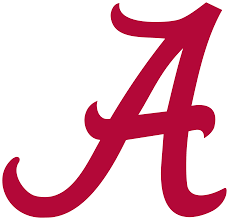 Alabama
Alabama 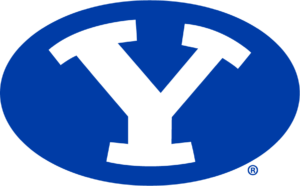 BYU
BYU 


